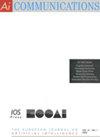通勤场景中基于经验共享的路径选择学习:基于智能体的方法
IF 1
4区 计算机科学
Q4 COMPUTER SCIENCE, ARTIFICIAL INTELLIGENCE
引用次数: 1
摘要
导航应用程序变得越来越受欢迎,因为它们向司机提供当前交通状况的信息,然后司机调整他们的路线选择。在通勤场景中,人们在特定的起点和目的地之间反复旅行,人们倾向于学习和适应不同的情况。如果从这样的学习任务中获得的经验是通过应用程序共享的呢?在本文中,我们分析了自适应驱动代理对整个网络的影响,当这些代理在强化学习设置中共享他们关于路线选择的聚合经验时。特别是,在这项调查中,使用了Q-learning,司机们分享了他们对系统的了解,而不仅仅是他们当前的出行时间信息。使用经典的通勤场景,我们展示了经验共享可以改善典型学习任务的收敛时间。此外,我们分析了个人学习动态,以了解集体和个人动态是如何相互关联的。基于这种有趣的个体学习动态模式,我们可以观察到这种模式,否则它只会隐藏在汇总分析中。本文章由计算机程序翻译,如有差异,请以英文原文为准。
Accelerating route choice learning with experience sharing in a commuting scenario: An agent-based approach
Navigation apps have become more and more popular, as they give information about the current traffic state to drivers who then adapt their route choice. In commuting scenarios, where people repeatedly travel between a particular origin and destination, people tend to learn and adapt to different situations. What if the experience gained from such a learning task is shared via an app? In this paper, we analyse the effects that adaptive driver agents cause on the overall network, when those agents share their aggregated experience about route choice in a reinforcement learning setup. In particular, in this investigation, Q-learning is used and drivers share what they have learnt about the system, not just information about their current travel times. Using a classical commuting scenario, we show that experience sharing can improve convergence times that underlie a typical learning task. Further, we analyse individual learning dynamics to get an impression how aggregate and individual dynamics are related to each other. Based on that interesting pattern of individual learning dynamics can be observed that would otherwise be hidden in an only aggregate analysis.
求助全文
通过发布文献求助,成功后即可免费获取论文全文。
去求助
来源期刊

AI Communications
工程技术-计算机:人工智能
CiteScore
2.30
自引率
12.50%
发文量
34
审稿时长
4.5 months
期刊介绍:
AI Communications is a journal on artificial intelligence (AI) which has a close relationship to EurAI (European Association for Artificial Intelligence, formerly ECCAI). It covers the whole AI community: Scientific institutions as well as commercial and industrial companies.
AI Communications aims to enhance contacts and information exchange between AI researchers and developers, and to provide supranational information to those concerned with AI and advanced information processing. AI Communications publishes refereed articles concerning scientific and technical AI procedures, provided they are of sufficient interest to a large readership of both scientific and practical background. In addition it contains high-level background material, both at the technical level as well as the level of opinions, policies and news.
 求助内容:
求助内容: 应助结果提醒方式:
应助结果提醒方式:


